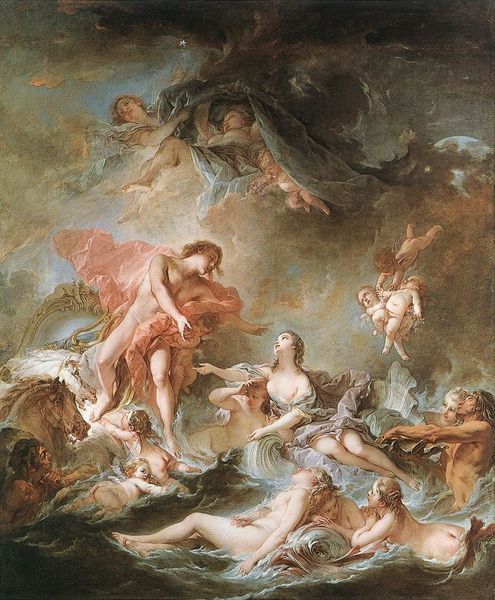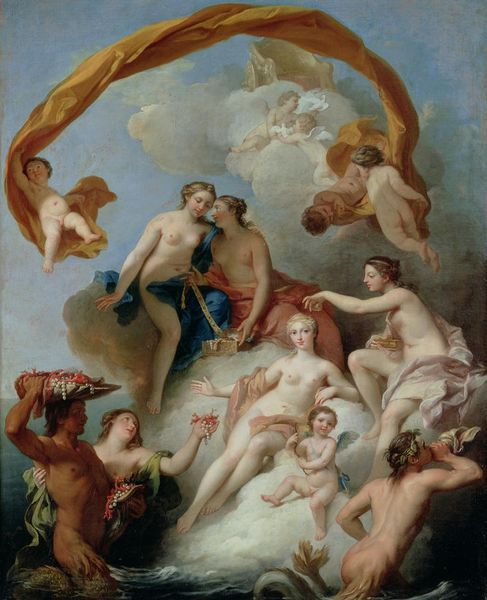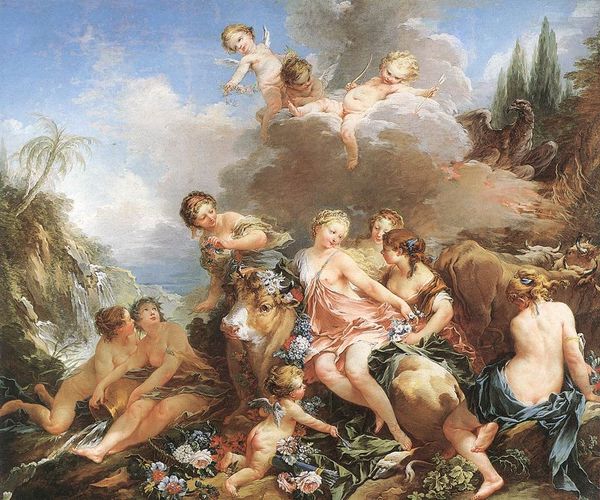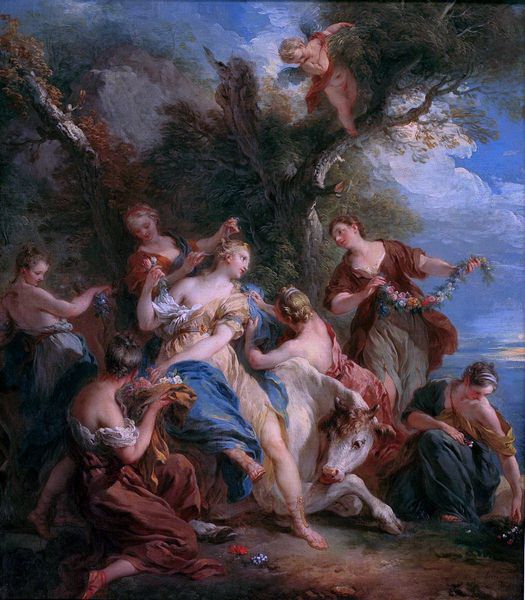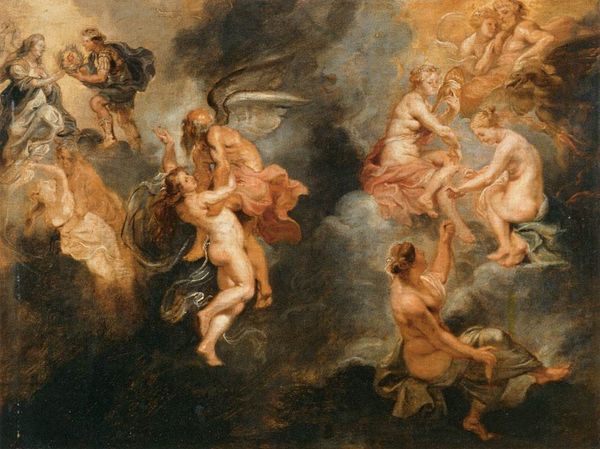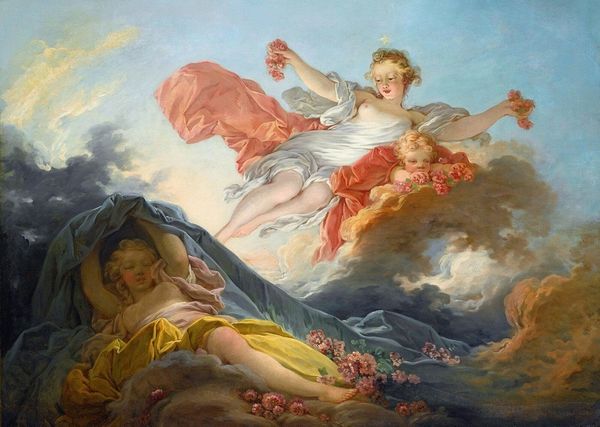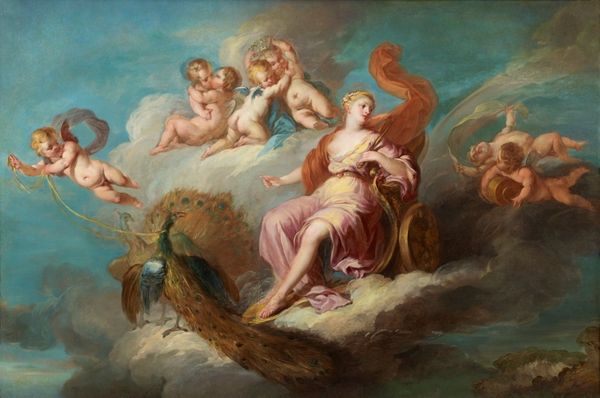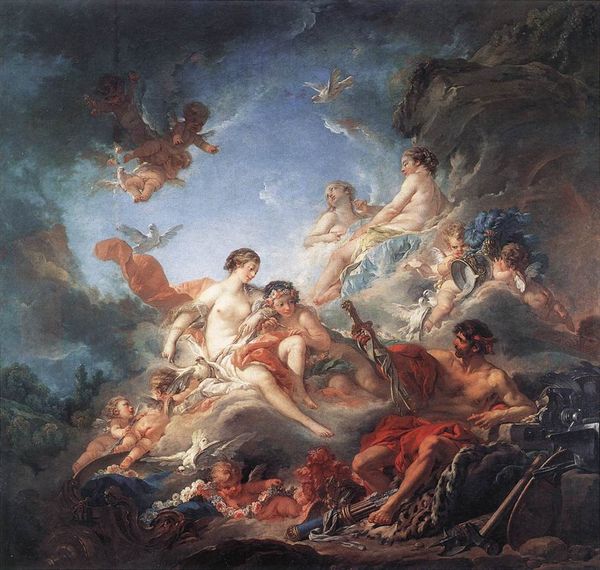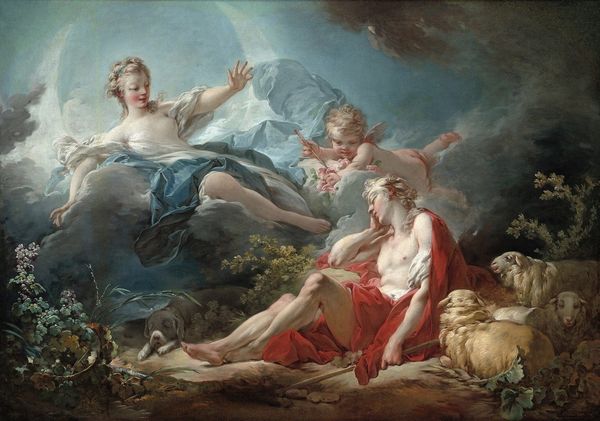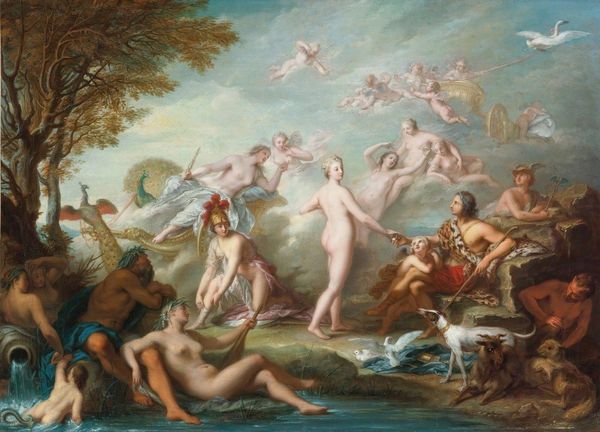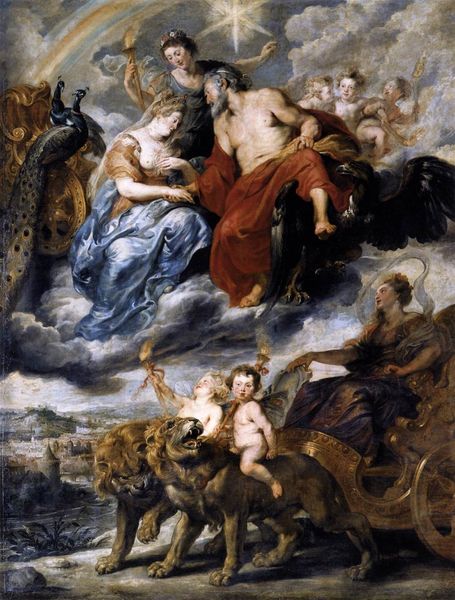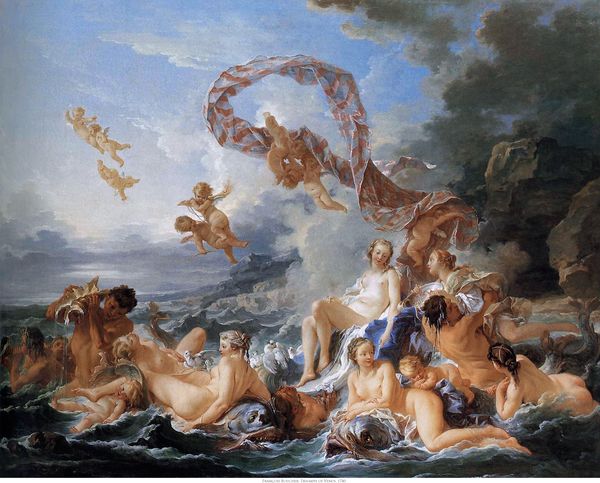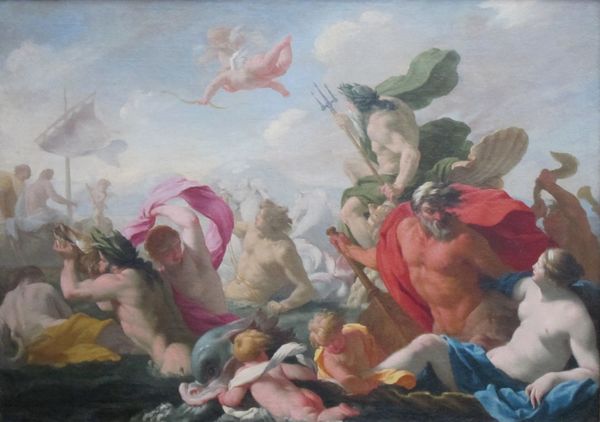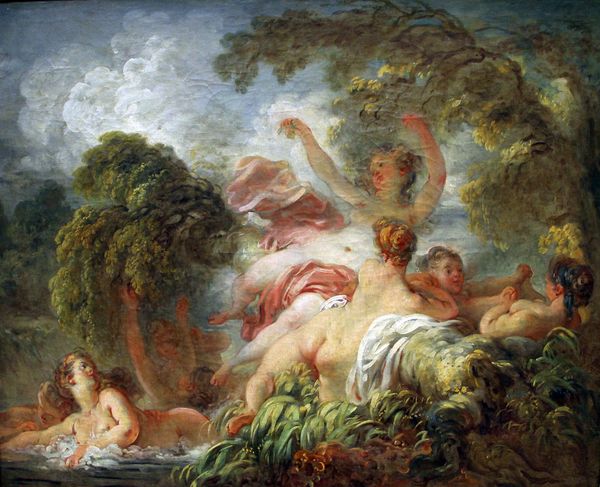
oil-paint
#
allegory
#
baroque
#
oil-paint
#
figuration
#
oil painting
#
roman-mythology
#
mythology
#
history-painting
#
rococo
Dimensions: 261 x 318 cm
Copyright: Public domain
Editor: "The Rising of the Sun," painted in 1753 by Francois Boucher, is breathtaking in its scale and color. It really is a swirl of bodies and clouds. How would you interpret this work within its historical context? Curator: Boucher's "The Rising of the Sun" encapsulates the Rococo spirit, commissioned during a period of immense political and social tension, yet dedicated to fantasy and decoration. Consider its original setting, most likely a palace, as pure theatre for the elite. How does this image function to legitimise royal power through allegory? Editor: It's interesting to think of it as propaganda almost, despite the fluffy putti! So, you are suggesting the mythological theme served a very practical purpose? Curator: Precisely. Mythological paintings like this weren't simply decorative; they promoted a specific view of power and order. Take, for example, how light triumphs over dark. In what ways is this linked to the patron, or audience, of this piece? What ideals might they seek reflected in its visual symbolism? Editor: That's a great way to put it into perspective. It is fascinating to realize art always has a job to do, and it isn't always pretty! Curator: Absolutely! Analyzing these works allows us to grasp not only aesthetic shifts, but also the ideologies woven into the very fabric of their creation, and consumption. What was made visible, and who benefited from the telling of certain tales, over others? Editor: I never thought of looking at the story of the piece through the lenses of political advantage, power and ideology. Thanks!
Comments
No comments
Be the first to comment and join the conversation on the ultimate creative platform.
